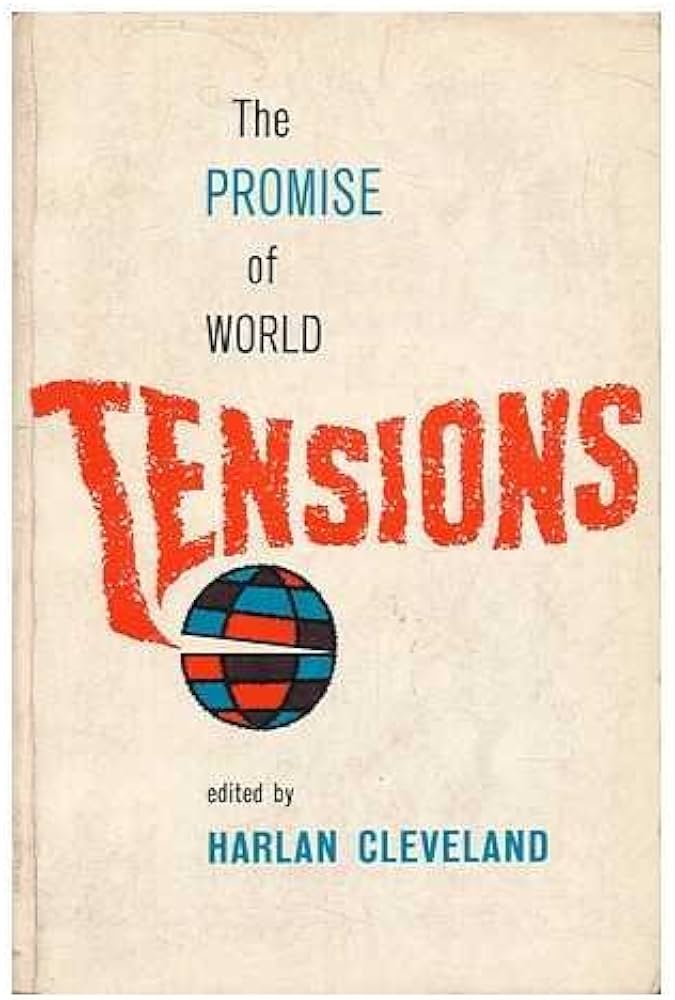Harlan Cleveland (ed), The Promise of World Tensions (1961)
Up until 5 November 2024, there had only been one American President to win a second non-sequential term. But while Grover Cleveland has largely been remembered as little more than the answer to a trivia question, he actually played a remarkably important role in Australian political history.
Like his 21st century Republican successor, Cleveland was something of a political outlier. Becoming in 1884 the first Democrat to win the presidency after the Civil War, he was from the then dead-red state of New York, and therefore managed to overcome the Democratic Party’s negative association with the Southern Confederacy. A self-styled corruption buster, who rose to fame by critiquing the misconduct that had grown endemic under the Republicans’ iron-like grip on his state, Cleveland’s platform amounted to a less populist version of ‘draining the swamp’. In advocating for this, he attracted a number of disaffected Republicans to his cause, who became known as the ‘Mugwumps’ – in the style of an RFK or Tulsi Gabbard. Moreover, Cleveland was alleged to have engaged in sexual improprieties, fathering an illegitimate child with a woman named Maria Halpin, who had ended up in a mental hospital. Leading opponents to disrupt his meetings by chanting ‘Ma, ma, where’s my Pa?’
But this is where the similarities essentially end. For Cleveland was a dedicated classical liberal, determined to reduce the role of the state and free the individual. Whereas Trump stands accused of overturning the Reagan legacy on this front. Although, where Reagan arguably failed to reduce the overall size of the federal government, Cleveland succeeded. All three at least agreed on one thing, that reducing taxation was a central political goal.
However, not all forms of taxation, as Trump is dedicated to tariff protectionism, a return to a policy that had helped to define the Republican Party in the late 19th and early 20th centuries. In contrast, Cleveland was an avowed Free Trader, which is where his story intersects with Australia. For in the 1880s and 1890s the central political debate down under, which helped to spawn some of our earliest formalised political parties, was the battle between free trade and protectionism. In this debate, Britain, under the leadership of fellow classical liberal William Gladstone, was depicted as the bastion of free trade, and the Republican dominated US was held up as the bastion of protectionism.
Hence, when in 1892, Cleveland defied the odds to win his iconic non-consecutive term, Australia’s Free Traders took this as a sign that protectionism was on the decline around the globe. They even held a massive party in Sydney celebrating the election result. At which George Reid, who had helped to defeat the initial push for federation in 1891, said that he now supported Australia’s colonies coming together, because he no longer feared protectionists from Victoria and elsewhere using the Commonwealth Parliament to erect a tariff wall around our island-continent. Subsequently, once elected NSW Premier in 1894, Reid would follow through on this commitment to pick up the federation cause. Which, despite his infamous ‘Yes-No’ speech, Reid would play a crucial role in seeing through to completion.
As a Victorian, Menzies was not a Free Trader, and he is unlikely to have known this connection between Cleveland and Australia. Nevertheless, the Menzies Collection contains a book by a distant relative of Grover by the name of Harlan Cleveland, who had remained dedicated to what was an increasingly left-leaning and statist Democratic Party. An expert on international relations, President Kennedy appointed him Assistant Secretary of State for International Organization Affairs in 1961. And shortly before this, Harlan had organised a major summit, which brought together 75% of the world’s living Nobel Peace Prize winners to a ‘Conference on World Tensions’ held in Chicago. The papers presented at which were subsequently published as The Promise of World Tensions.
This idealistic attempt to help create a more peaceful world was a fitting tribute to Harlan’s ancestor. As 19th century Free Traders genuinely believed that opening up international commerce could help bring an end to wars, by allowing nations to easily access resources they would otherwise have to fight over.
You might also like...
Sign up to our newsletter
Sign up for our monthly newsletter to hear the latest news and receive information about upcoming events.


